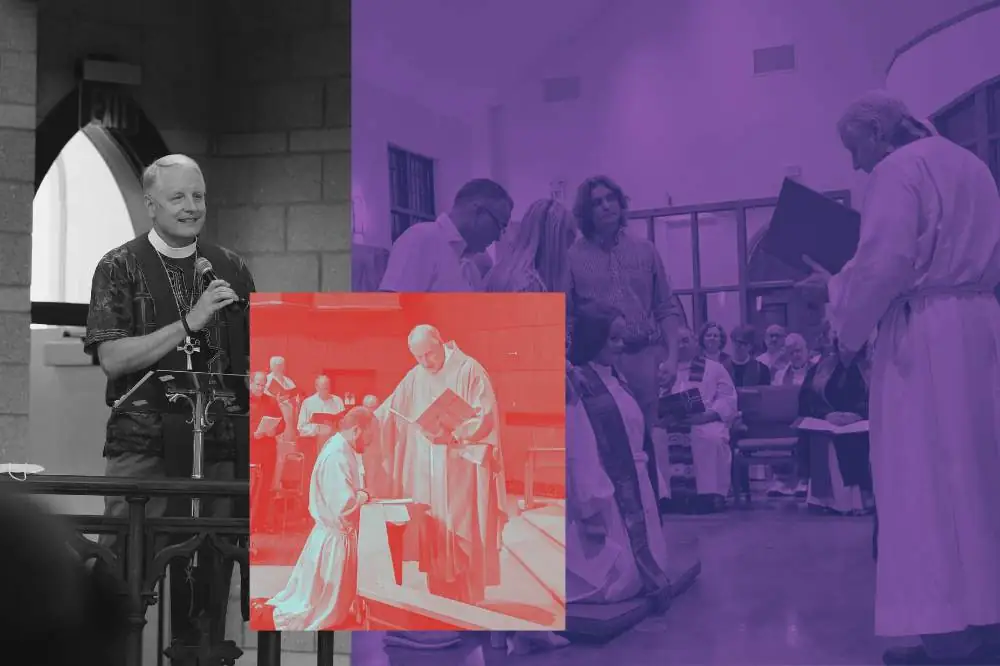Isaiah 43:1-2 has long been one of my go-to verses. I do find it a personally comforting reassurance, but it provides a hopeful context in response to the giant “Why” questions when we suffer. Surely, like me, you’ve heard well-meaning people jump to what are essentially discussion stoppers with responses like, “Well, everything happens for a reason,” or “Sure, it sounds terrible, but it was God’s way of accomplishing/punishing/teaching a lesson to x, y, z for how they did a,b,c.” Or the simple, “It was God’s will.”
But now thus says the LORD, he who created you, O Jacob, he who formed you, O Israel: Do not fear, for I have redeemed you; I have called you by name, you are mine. When you pass through the waters, I will be with you; and through the rivers, they shall not overwhelm you; when you walk through fire you shall not be burned, and the flame shall not consume you. (Isaiah 43:1-2)
I don’t find a vengeful God who intentionally sends Hurricane Ian across Florida with deadly widespread destruction any more helpful than I find the God of the Noah narrative. Made in God’s image, we have the ability to deliberate and choose morally, yet as creatures less than the Creator, we are bound to fall short. And the only choice God has is to flood the whole world to destroy everyone but Noah and his family and his two-by-two companions?
“Theodicy” is the dilemma that Rabbi Kushner posed in his book that begs, “Why do bad things happen to good people?” Is God angry? Trying to make a point? Visiting the sins of previous generations on the children’s children? We want—no, we demand—that the world make sense. We think we must know and are entitled to know why. To know everything. But think back to the Genesis creation story. Remember the tree in the garden? That tree had a name. The Tree of Knowledge of All Good and Evil. Or, as Satan put it in the temptation, “If you eat of it, you’ll know everything, and you’ll be like God.”
The Book of Job is all about theodicy. Job has the worst things imaginable happen to him, and it seems to be because God has some sort of perverse bet with the Devil, but faithful Job will not question God. Finally, at the end of his rope and egged on by friends, Job asks God “Why?” God’s sarcasm is stinging. Paraphrased, it’s, “Oh, Mr. Job, sure, let me answer your question since you deserve to know! But first, just remind me, will you, where were you when I raised up the mountains and stomped down the valleys and sprinkled the stars?” In other words, you don’t get to know everything. You aren’t entitled to all the answers. There are plenty of things that don’t make logical sense. If they did, they would be knowledge, but as it is, while we pursue knowledge and the good that comes from it, we are called to faith.
In Romans 8, Paul doesn’t say, “Everything that happens, God made happen for a reason.” No, Paul says, whatever happens, “All things work together for good for those who love God, who are called according to God’s purpose.” (8:28) That is, God takes some of the worst “in the midst of things we cannot understand” (ELW funeral liturgy prayers) and doesn’t answer them but even so works and brings good from them. Things like a cross—the worst instrument of torture and humiliation and death the Roman Empire could dish out. So it’s not so much that God wills suffering and devastation. But as with Isaiah 43, God accompanies us in suffering. That suffering—though so very real that Jesus cried out “Why have you forsaken me?”—it is never final. The worst thing is never the last thing. All will be well in the end. If all is not well, then this is not the end! This is Gospel!
Isaiah 43 never says “If you suffer.” It says “When you suffer.” And the God who in Jesus experiences our suffering assures us that just when it seems God is most absent, God is most present and about to do a new thing. God didn’t send Hurricane Ian, but God can work through it for great good, and God enlists us as hands, feet, voices, and dollars in that work of restoration. The old spiritual “Give Me Jesus” has it right all along amid the suffering. Not “Give Me Answers!”, but “Give Me Jesus!” And not just as theoretical panacea and opiate of the masses to maintain status quo, but the Jesus of Luke who liberates the captives.
Why is there suffering? The most appropriate theological and pastoral answer is “I don’t know—but let me tell you what I do know. God in Jesus is with us, with you. God in Jesus loves us, loves you. God in Jesus will show us how and empower us to help each other through the storms, and God in Jesus will have the last word. Even beyond death itself!”
Walking with you,





